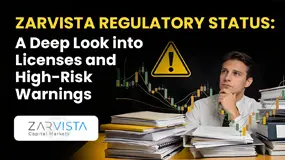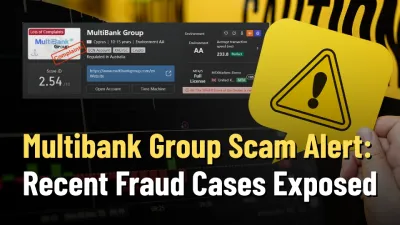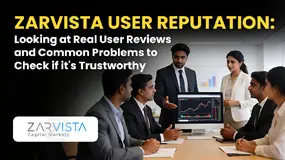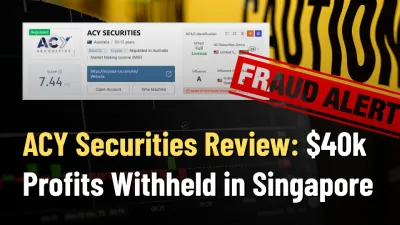Abstract:For traders, the conclusion is clear: a high-quality IB is a value-adding partner. They can really reduce your trading costs through rebates, speed up your learning curve with exclusive resources, and act as a supportive advocate in your trading journey. On the other hand, a low-quality IB presents a risk. By using our checking list, you can confidently distinguish between a genuine partner and a simple gatekeeper. For aspiring IBs, the path to success is not found in a secret marketing trick or the highest-paying CPA offer. Lasting success is built by establishing a legitimate business founded on expertise, trust, and the consistent delivery of demonstrable value. It's about building a brand and a community that puts the client's interests first.
Welcome to our complete guide on the role of the Introducing Broker, or IB, in the forex market. If you've ever wondered what is ib in forex, how they work, and what they do in the huge forex world, you've found the right place.
An Introducing Broker in forex is a person or company that brings new clients to a forex broker. In exchange for this referral, the IB gets paid a commission. Think of them as an independent agent or matchmaker connecting traders with brokers. Their main job is marketing and finding new clients, making them an important part of the industry.
This guide is made for two specific groups:
- Traders who want to understand if using an IB helps them and how to choose a trustworthy partner.
- Business people and marketers thinking about becoming a forex IB and building a business.
We will go from the basic definition to the complex money models, explore the benefits and risks for traders, and give a practical plan for those looking to become an IB. Let's start.
The Main IB Idea
To fully understand the forex world, knowing the IB's job is essential. They are more than just a link in a chain; they are an important part of a broker's growth plan and can be valuable for a trader.
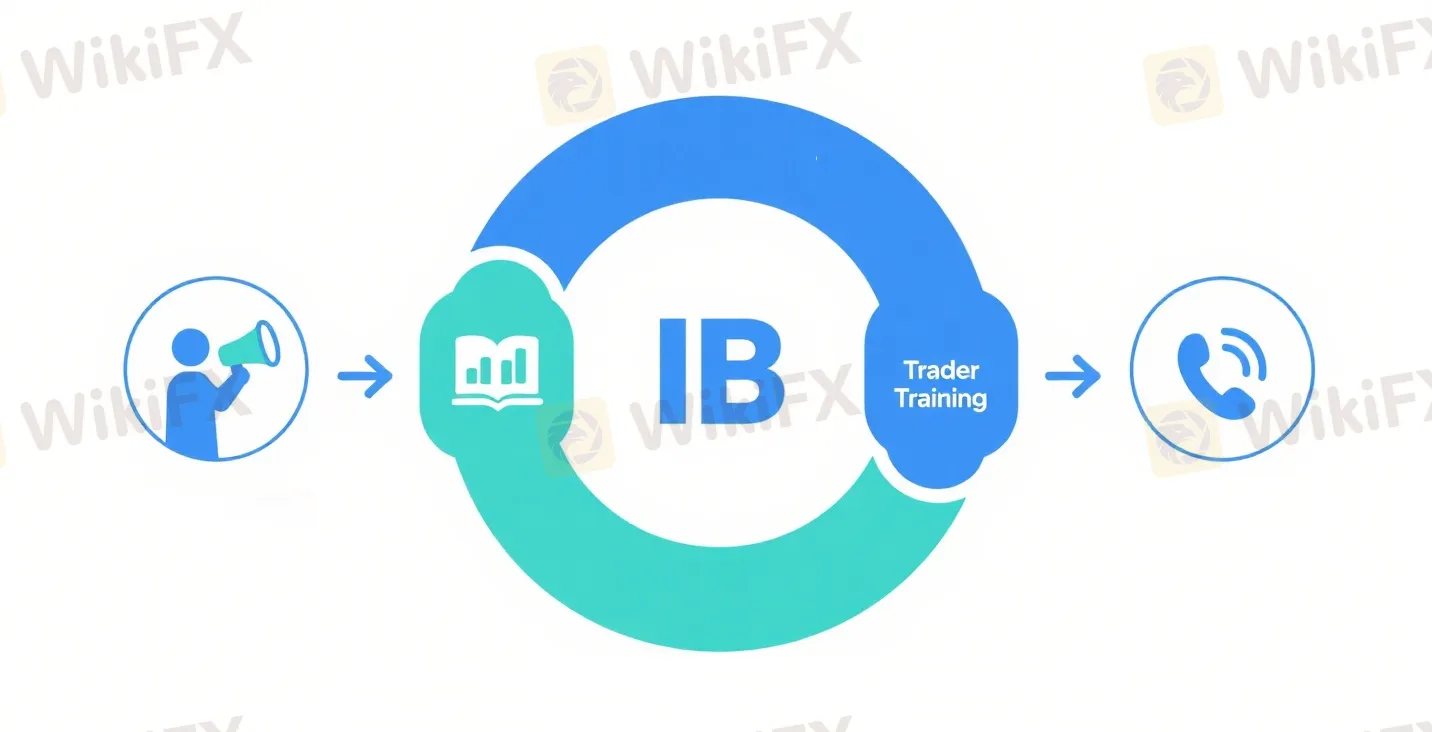
A Bridge to Brokers
An Introducing Broker works as a middleman, but their job focuses on marketing, education, and client support. They build a bridge between potential traders and the broker's platform. It's important to understand the separation of duties, as this is the foundation of trust in the relationship.
An IB typically DOES:
- Market and promote the services of a specific broker.
- Teach potential clients about the forex market and the broker's offerings.
- Give ongoing customer support, acting as a first point of contact.
- Offer extra value, such as rebates, tools, or community access.
An IB typically DOES NOT:
- Hold or handle your trading money. All deposits go directly to the regulated broker.
- Make trades for you or manage your trading account.
- Give licensed financial advice (unless they have separate, specific qualifications).
- Promise profits or make unrealistic claims about returns.
This difference is very important. A legitimate IB helps your connection to a broker; they do not control your money or your trading decisions.
The IB-Broker-Trader Connection
The relationship works on a clear and simple process flow, driven by technology and partnership agreements. We find it is best understood as a sequence of events.
1. A trader finds an IB through their website, social media channel, educational course, or community.
2. The trader uses the IB's unique referral link or partner code to open an account with the forex broker. This digitally connects the trader to the IB.
3. The trader puts money directly with the broker and starts trading. The broker's system tracks all trading activity connected to the IB's referred clients.
4. The broker then pays the IB a pre-agreed commission based on the trader's activity.
5. The trader's main trading experience—spreads, platform, execution speed—is generally the same as a client who signed up directly. However, they may get additional benefits from their IB.
A simple way to see this flow is: [Trader] -> [IB's Referral Link] -> [Broker Sign-up & Trading] -> [Commission to IB]
The Broker's View
Why would a multi-million dollar brokerage rely on a network of independent partners? The business logic is sound and powerful. IBs represent a performance-based marketing force that is difficult to copy through traditional advertising.
First, IBs offer scalable marketing. A broker pays only when a client is successfully referred and becomes active, which significantly reduces upfront advertising costs and financial risk.
Second, IBs allow for deep market reach. An IB in a specific country or with expertise in a niche trading strategy can reach audiences the broker's corporate marketing team cannot. They provide local language support, cultural understanding, and targeted content that connects with specific communities.
Finally, using IBs often lowers the overall Cost of Client Acquisition (CPA). Getting a new trader through broad channels like Google Ads can be extremely expensive. The affiliate and partner marketing model, of which IBs are a key part, is a multi-billion dollar industry because it is highly efficient. For brokers, paying a structured commission for a referred, active client is a cost-effective and sustainable growth strategy.
The Money System
Understanding how IBs get paid is important for both traders and aspiring partners. For traders, it provides transparency about where the money comes from. For potential IBs, it outlines the business models available for making money.
Commission Models Explained
IB payment is not the same across the industry; however, it generally falls into three main categories. Brokers offer these models to align with different types of IB businesses and marketing strategies.
Realistic Earning Potential
It is important to approach the earning potential of an IB with realism. Income is not guaranteed and varies dramatically. Success depends on the IB's dedication, marketing skill, the quality of their chosen broker, the commission model, and, most importantly, the trading activity of their referred clients.
From our experience, new IBs who need initial cash flow often choose CPA models. However, established IBs who have built a trusted brand and a strong community almost always focus on the revenue share model. It aligns their success with the long-term success and activity of their clients, creating a healthier, more sustainable business.
To show this, consider a simple, example revenue share case. If an IB has 20 active clients who, on average, trade 10 standard lots per month, and the IB's commission is $3 per lot, the calculation would be:
20 clients * 10 lots/client * $3/lot = $600 per month.
This shows how income scales directly with the number of active clients and their trading volume. It is a business that requires consistent effort to build and nurture a client base.
The Trader's View
For a trader, the decision to sign up through an IB versus going directly to a broker is an important one. A great IB can be a powerful ally, while a poor one can be harmful. Making an informed choice requires a balanced view of the potential benefits and risks.
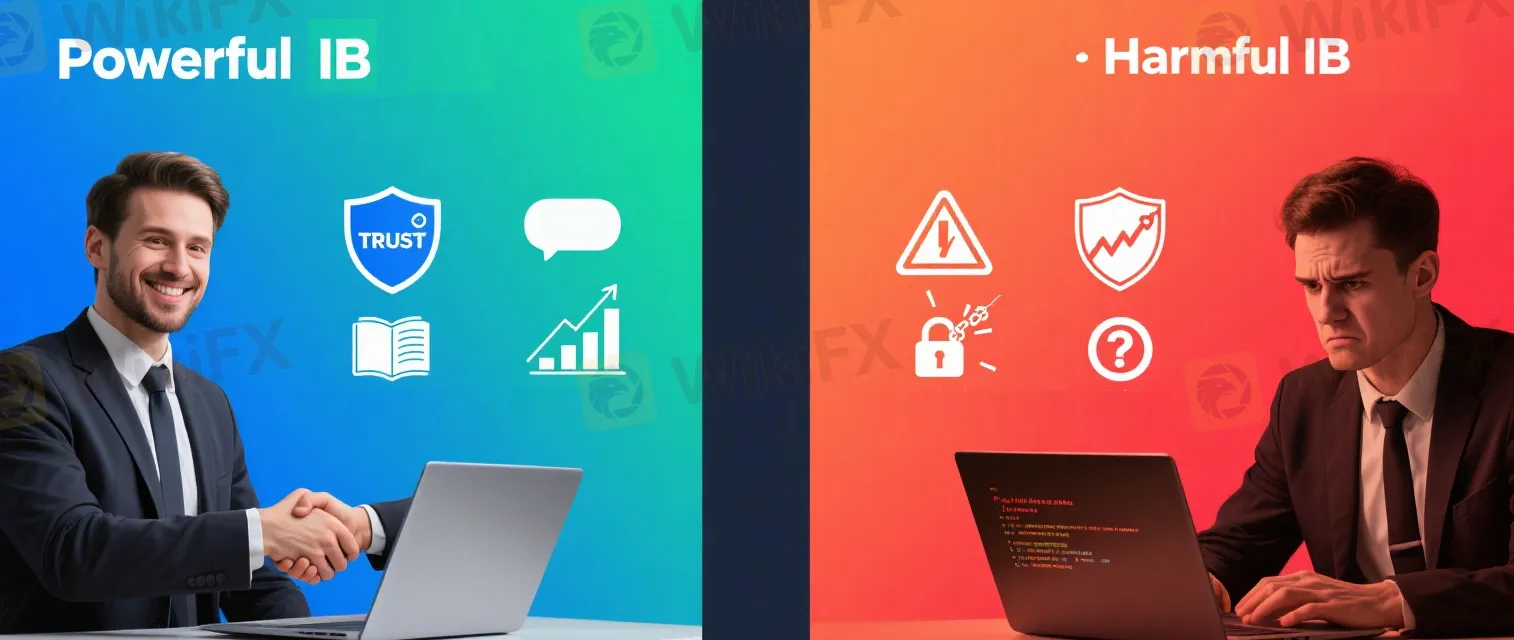
Potential Trader Benefits
A quality IB does more than just provide a referral link. They add real value to your trading journey. We have seen the best IBs provide a suite of benefits that enhance the standard offering from the broker.
- Cost Reduction via Rebates: This is one of the most compelling benefits. The IB shares a portion of their revenue share commission back with you, the trader. This payment, known as a rebate, directly reduces your trading costs on every trade, whether you win or lose.
- Enhanced and Personal Support: While brokers have large support departments, a good IB can offer a more personal and often faster line of communication. They can act as your advocate, helping to resolve issues or answer questions by using their direct relationship with the broker's partner management team.
- Exclusive Educational Resources: Many IBs are educators at heart. They may offer their own video tutorials, in-depth market analysis, strategy guides, or live webinars that are only available to their referred clients.
- Access to a Community: Top-tier IBs often build vibrant trading communities on platforms like Discord or Telegram. These groups allow you to connect with other traders, share ideas, and learn in a collaborative environment.
- Free or Discounted Tools: To add further value, an IB might provide their clients with free access to custom-built trading indicators, Expert Advisors (EAs), or analytical dashboards that would otherwise be paid products.
Risks and Red Flags
Transparency is key to trust, and it's important to acknowledge the potential downsides. Being aware of these red flags will help you avoid partnerships that are not in your best interest.
- Conflict of Interest: The most significant risk is an unethical IB who promotes a low-quality or even fraudulent broker simply because that broker offers the highest commission payouts. Their financial incentive overrides the client's best interest.
- Encouraging Over-trading: In a revenue share model, the IB's income is tied to your trading volume. An unscrupulous IB might encourage you to trade excessively or use dangerously high leverage to maximize their own commissions, without regard for your risk management.
- Misleading and Hyped Marketing: Any individual or entity guaranteeing profits or showing a perfect track record is a major red flag. Forex trading involves substantial risk, and promises of “turning $100 into $10,000 in a week” are signs of a scam.
- No Added Value: If an IB's only offering is a referral link and they provide no rebates, no support, no education, and no community, they are simply a tollgate. You are taking on the potential risks of an intermediary without receiving any of the benefits.
Your IB Checking List
To help you make a safe and beneficial choice, we have developed a practical due diligence checklist. Work through these steps before signing up under any IB.
1. The Value Proposition Check. What real, extra value are they providing beyond the broker's standard offering? Look for rebates, education, tools, or dedicated support. If the answer is “nothing,” you should probably look elsewhere.
2. The Broker Quality Check. Research the broker the IB is promoting. Is it regulated by a top-tier authority like the FCA, CySEC, or ASIC? An IB promoting an unregulated or poorly regulated broker is an immediate and non-negotiable red flag.
3. The Transparency Test. Are they open about their partnership with the broker and how they earn money? If they offer rebates, is the structure clear and easy to understand? A trustworthy partner is not shy about explaining the business relationship.
4. The Reputation Scan. Search for independent reviews of the IB themselves, not just the broker. Look for feedback on trusted forums like Forex Peace Army, Reddit's trading subreddits, or Trustpilot. See what other traders are saying about their experience.
5. The Pressure Test. Are they pressuring you to deposit a large sum of money or to start trading immediately? A good partner educates and guides; they do not use high-pressure sales tactics. Your financial decisions should be your own.
6. The “Guaranteed Profit” Alarm. This is the simplest and most important test. Do they promise, hint at, or guarantee any level of returns? If the answer is yes, you should stop all communication. This is the number one sign of an untrustworthy operator in the financial space.
7. The Support Responsiveness Test. Before you even sign up, send them an email or a message with a real question. The speed, quality, and professionalism of their response are strong indicators of the level of support you will receive after becoming their client.
The Business Path
For many experienced traders, educators, and marketers, becoming a forex IB is a compelling business opportunity. It offers a way to use expertise and build a scalable income stream. However, success requires treating it as a serious business, not a get-rich-quick scheme.
Who Should Be an IB?
While anyone can technically sign up for an IB program, certain profiles are naturally positioned for success. The common thread is the ability to provide genuine value to a specific audience.
- The Educator: This is perhaps the most common profile. Successful traders or market analysts who want to share their knowledge through a blog, YouTube channel, podcast, or structured courses. Their audience trusts their expertise, making their broker recommendation a natural extension of their content.
- The Community Builder: These are individuals who excel at creating and managing engaged online communities. They might run a popular social media group, a Discord server, or a local trading meetup. Their value is the network and collaborative environment they provide.
- The Digital Marketer: Experts in SEO, content marketing, or paid advertising can build a business by generating highly targeted traffic. They create a professional website or platform that ranks for relevant keywords and attracts traders looking for information and broker comparisons.
- The FinTech Developer: Programmers who create custom trading tools, indicators, signal services, or mobile apps can partner with brokers. They offer their technology to clients who sign up with the partner broker, creating a powerful symbiotic relationship.
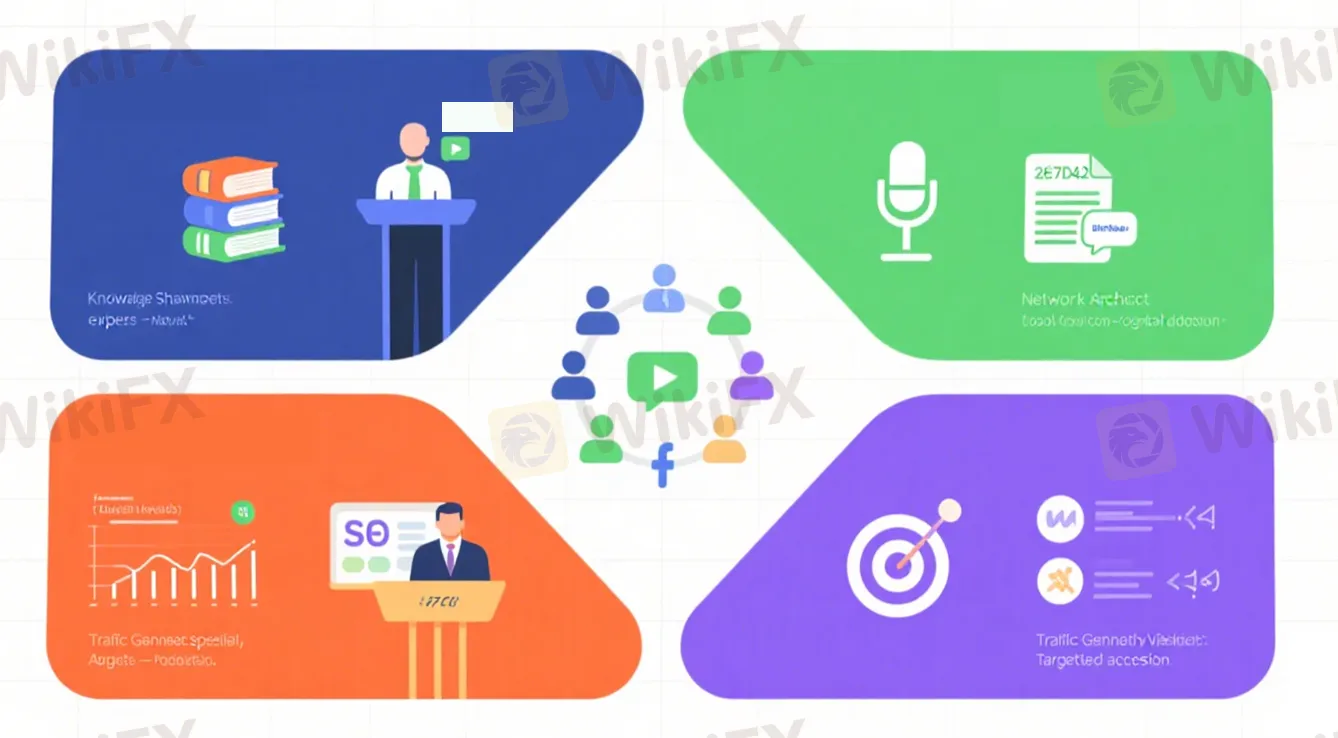
From our experience, successful IBs come from all these backgrounds. The unifying factor is not a “guru” status but a consistent commitment to delivering real, demonstrable value to their audience before asking for anything in return.
Your IB Business Plan
Launching a successful IB business requires a strategic plan. We've distilled the process into a step-by-step plan that focuses on long-term, sustainable growth.
Step 1: Define Your Niche and Value Proposition. Do not try to be everything to everyone. Decide who your target audience is. Are you focusing on beginner scalpers, advanced swing traders, or users of a specific platform like MetaTrader 5? Then, define your unique value. Will it be the lowest-cost trading via rebates, the best educational content, or a highly engaged private community? Your niche and value proposition are the foundation of your business.
Step 2: Choose Your Broker Partner Wisely. This is the most critical decision you will make. Use the same checking list a trader would. Focus on brokers with top-tier regulation, a sterling industry reputation, competitive trading conditions, and a reliable IB program. Look for a partner with a transparent IB portal for tracking referrals and a history of dependable payouts. Do not simply choose the broker offering the highest CPA. A long-term partnership with a quality broker is far more valuable.
Step 3: Build Your Platform. This is your digital storefront where you will deliver value and attract clients. It could be a professional website with a blog, a high-quality YouTube channel, a Substack newsletter, or a Discord server. Whatever you choose, it must look professional and be centered on serving your audience.
Step 4: Create High-Value Content. This is the engine of your marketing. Your content must solve problems for your target audience. Write detailed guides, create insightful video tutorials, host informative webinars, or develop free tools. Focus on creating evergreen content—like “A Complete Guide to Risk Management”—that remains relevant and provides value for years. This content builds trust and authority.
Step 5: Market and Promote Your Platform. With your platform built and populated with great content, it's time to drive traffic. Use SEO best practices to rank in search engines. Promote your content on relevant social media platforms. Build an email list to nurture your audience. You might consider targeted paid advertising once you have a clear understanding of your client conversion metrics.
Step 6: Nurture Your Referred Clients. The work is not finished when a client signs up. For a sustainable revenue share business, you must deliver on your promises. Provide the ongoing support you advertised, engage with your community, and ensure your clients feel valued. A happy, active client is the cornerstone of a long-term IB business.
The Bigger Picture
To complete your understanding, it's helpful to place the IB role in the context of the wider forex industry and differentiate it from similar terms. It's also critical to touch upon the regulatory environment that governs these partnerships.
IBs vs. Affiliates vs. White Labels
These terms are sometimes used interchangeably, but they can have distinct meanings. The lines are often blurry, but we can draw some general distinctions.
- Forex Affiliate: This is often a broader term that can encompass IBs. However, it typically implies a more hands-off, purely digital marketing approach. An affiliate might focus on placing banner ads, writing SEO articles, or running paid ad campaigns that lead directly to the broker, with little to no ongoing client interaction.
- Introducing Broker (IB): This term, as we've detailed, usually implies a closer, more hands-on relationship with the referred clients. It suggests a level of direct support, education, or community management that goes beyond simple online marketing.
- White Label Partner: This is a much more involved and resource-intensive partnership. A white label partner essentially licenses a broker's entire trading platform and rebrands it as their own. They are responsible for their own branding, marketing, and front-line operations, while the core broker provides the liquidity and back-end technology. It is a full-fledged business, far beyond the scope of a typical IB.
Regulatory Considerations
The regulatory landscape is a critical component of the IB ecosystem. While an IB may not need to be directly licensed in every jurisdiction—because they do not handle client funds—their activities are still under the purview of financial regulations, especially concerning marketing claims.
The most important regulatory consideration for an IB is the broker they choose to partner with. Promoting an unregulated broker is not only a disservice to clients but can also expose the IB to legal and financial risks. Traders and IBs alike should exclusively work with brokers regulated by reputable, top-tier authorities. These include:
- The Financial Conduct Authority (FCA) in the United Kingdom.
- The Cyprus Securities and Exchange Commission (CySEC) in the European Union.
- The Australian Securities and Investments Commission (ASIC) in Australia.
- The National Futures Association (NFA) and Commodity Futures Trading Commission (CFTC) in the United States.
It is also important to note that in some highly regulated jurisdictions, such as the United States, individuals and firms acting as IBs must register with and be members of the NFA. This shows a deep level of compliance and is a requirement for legally operating in that market.
The Modern IB Role
The role of the Introducing Broker has evolved significantly from a simple referral agent to a multifaceted partner within the forex ecosystem. The modern IB stands at the intersection of marketing, education, and customer support.
For traders, the conclusion is clear: a high-quality IB is a value-adding partner. They can really reduce your trading costs through rebates, speed up your learning curve with exclusive resources, and act as a supportive advocate in your trading journey. On the other hand, a low-quality IB presents a risk. By using our checking list, you can confidently distinguish between a genuine partner and a simple gatekeeper.
For aspiring IBs, the path to success is not found in a secret marketing trick or the highest-paying CPA offer. Lasting success is built by establishing a legitimate business founded on expertise, trust, and the consistent delivery of demonstrable value. It's about building a brand and a community that puts the client's interests first.
Ultimately, whether you are choosing to work with an IB or aspiring to become one, the guiding principles are the same: transparency, added value, and a client-first mentality. In the competitive and ever-changing landscape of the modern forex market, this is the only sustainable path forward.





